Agroecology and the Sustainable Development Goals (SDGs)
The 2030 Agenda for Sustainable Development calls for a new agricultural approach to ensure sufficient, safe and nutritious food respecting human rights. FAO Members have a common vision for sustainable food and agriculture, and agroecology is a key response to guide the sustainable transformation of our food systems.
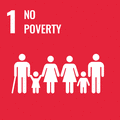
End poverty in all its forms everywhere
Family farming, herding and artisanal fisheries and aquaculture provide livelihoods for many of the world’s rural poor. Agroecological approaches support food producers in reducing production costs, translating into greater income, economic stability and resilience.
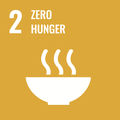
End hunger, achieve food security and improved nutrition and promote sustainable agriculture
Agroecological systems optimize the use of local and renewable resources and knowledge. This enables agricultural production systems to harness ecosystem benefits such as pest control, pollination, soil health and erosion control while ensuring productivity. The conservation and sustainable use of biodiversity leads to robust ecosystem services and sustainable agriculture.

Ensure healthy lives and promote well-being for all at all ages
By minimizing the use of potentially harmful agro-chemical inputs, agroecology reduces agriculture’s negative effects on both human and environmental health. By re-localizing diets, agroecology can help to inform sustainable and healthy diets.

Ensure inclusive and equitable quality education and promote lifelong learning opportunities for all
Agroecology depends on knowledge adapted to local contexts by food producers and other actors. It delivers relevant and practical knowledge through empowering peer-to-peer systems, enhanced with the knowledge of formal scientists.

Achieve gender equality and empower all women and girls
Women have a central role in agroecology. They are often custodians of healthy and traditional diets and are key players in sustainable food systems, from the home, to the field, to the market and beyond. Agroecology has the potential to advance women’s rights, self-determination and autonomy.
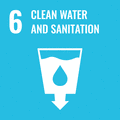
Ensure availability and sustainable management of water and sanitation for all
Agroecology prevents surface water and groundwater pollution and contamination. It promotes practices that are efficient in water use, enhances soil water retention, and values locally adapted crops that require less (or no) irrigation, allowing safer and more sustainable aquifer storage, recovery and recharge.
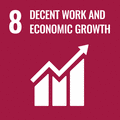
Promote sustained, inclusive and sustainable economic growth, full and productive employment and decent work for all
Agroecological approaches create new decent rural employment opportunities for youth and women. The increased resilience of agroecological production systems helps to better maintain existing jobs, supporting rural livelihoods and communities.
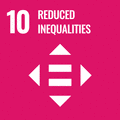
Reduce inequality within and among countries
Agroecology gives priority to the most marginalised and vulnerable sectors of society: rural women, youth, family farmers and indigenous peoples. Agroecology has the potential to address the inequality of the food system by providing locally–based solutions to specific contexts and territories.
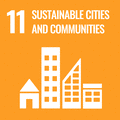
Make cities and human settlements inclusive, safe, resilient and sustainable
By promoting a territorial approach to development, agroecology encourages the development of integrated plans for urban and rural development, with urban areas recognising the multiple benefits that sustainable landscapes can provide them and re-connecting producers and consumers to shorten value chains and increase resilience.
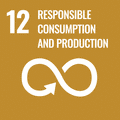
Ensure sustainable consumption and production patterns
Agroecology enhances diversification to achieve sustainable and healthy diets and food and nutrition security. Agroecological food systems have proven, in many local contexts, to be exemplary providers of high-quality nutritious, healthy and adequate diets, preserving and promoting local food traditions and traditional knowledge. By shortening value chains, agroecology contributes to the reduction of food losses and waste.

Take urgent action to combat climate change and its impacts
Agroecology helps mitigate against climate change and its impacts. It reduces the emission of greenhouse gases by promoting integrated production systems that are less dependent on energy from fossil fuels and that store and fix carbon. By promoting diversified and integrated production systems, agroecology facilitates resilience and adaptation to a changing climate.
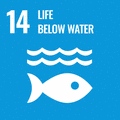
Conserve and sustainably use the oceans, seas and marine resources for sustainable development
In aquatic systems, the Ecosystem Approach to Fisheries (EAF) and to aquaculture (EAA) demonstrates an agroecological approach. The Ecosystem Approach ensures that the management of living resources applies an integrated approach to fisheries within meaningful boundaries, taking into account knowledge and uncertainties in the biotic, abiotic and human components.

Protect, restore and promote sustainable use of terrestrial ecosystems, sustainably manage forests, combat desertification, and halt and reverse land degradation and halt biodiversity loss
Agroecology works with local communities, food producers, and other actors to prevent land degradation and restore degraded areas. Agroecology helps to conserve and sustainably use and value the biodiversity and ecosystem services that underpin food production.

Promote peaceful and inclusive societies for sustainable development, provide access to justice for all and build effective, accountable and inclusive institutions at all levels
Agroecology supports strong and inclusive producers’ organisations that enable the sharing and co-creation of knowledge, solidarity, representation of their concerns at the policy level and responsible governance.

Strengthen the means of implementation and revitalize the Global Partnership for Sustainable Development
Scaling up agroecology calls for increased cooperation between productive sectors, social actors and countries.



.JPG)




0 Comment to "Agroecology and Global Goals"
Post a Comment